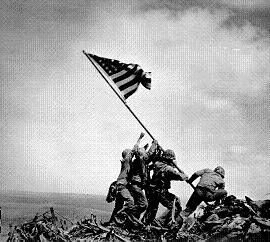“All War is Stupid”

It was one of TIME magazine’s most dramatic covers. A lone soldier stood atop a pile of rocks and rubble, a tiny dot on a landscape of rugged mountains towering into the horizon. Title: “Afghanistan: THE RIGHT WAR.”
It was July 2008 at the height of the presidential campaign, and Barack Obama was already defining himself as a “war president” against John McCain by promising to send two additional brigades to Afghanistan — while McCain would send at least three. And Obama would seek more help from NATO allies.
On “How to Save Afghanistan,” TIME offered advice from Professor Rory Stewart, who lives in Kabul and was recently named head of the Carr Center for Human Rights at Harvard. His first rule: Don’t send more troops. Nor should we increase our involvement in the government and the economy. We should focus on development assistance, agricultural irrigation, education, and roads. Our military should focus on counterterrorism, not counter-insurgency. Transforming a country of 32 million people was a task not for Westerners but for Afghans. He concludes, “We do not have a moral obligation to do what we cannot do.”
In the months preceding Obama’s reconsideration of American policy, good advice piled up in the press and online. Columnist William Pfaff recalled that Obama was not against all wars, only “stupid wars.” Another writer pointed out that John F. Kennedy first wrote “War is stupid” from the Pacific during World War II.
Pfaff suggested Afghanistan might be a stupid war. What makes us sure, he asks, that Osama Bin Laden and his staff are still in Afghanistan or Pakistan? Maybe they have shaved their beards and are living it up in South America or Paris, while they send out rumors that he’s in this or that Pakistan village so the Americans will bomb them, kill more civilians and generate more hatred of our presence.
Jerome Grossman’s blog (May 23, 2009) reminded us that a war in Afghanistan would not save us from another September 11. “That attack was made by 19 people, not one of them Afghans, armed with credit cards and box cutters.” Leslie Gelb (New York Times, March 13, 2009), said, increase economic aid while withdrawing troops over three years. Include the Taliban in the power structure, and ring Afghanistan with neighbors — China, India, Russia, NATO, and Iran — who would restrain the Afghan drug trade and Islamist extremism.
Several critics warned that Afghanistan could become Obama’s Vietnam. As much as I admire the rhetoric of his Nobel Prize speech and accept the argument that sometimes force must be used against evil, and though Obama rejects the suggestion that Afghanistan is like Vietnam, it is.
Without asking the American upper and middle class to sacrifice, through raised taxes and a draft, we are sending young men and women to be killed and wounded to support a corrupt regime which the majority of its people oppose. Afghanistan now ranks as the fifth most corrupt country on earth. It is hard to escape the impression that Obama, having opposed the Iraq war, now feels that as a “war president” and commander of the armed forces he must strike the pose of a tough guy, in tune with the generals who have had training and experiences this young law professor never had.
Muckraking journalist I. F. Stone used to quip that the only president to stand up to generals was Eisenhower, who had five stars on his shoulders when they had only four.
But another issue looms large on whether this is a just war. Obama, in his Nobel address, committed the United Sates to the traditional principles of the just war, which include the immunity of con-combatants, which means we may not kill civilians in the course of pursuing other goals. In modern wars, Obama admits, more civilians than soldiers die. And, according to reports, he has ordered commanders to minimize civilian casualties.
But news stories for 2009 are a steady stream of maneuvers, air raids, gone wrong, which end up in the death of households invaded in the night, of bomb strikes called in to wipe out targets which turn out to not be enemy bastions. A UN report in February, 2009, said that in air strikes and village raids American led attacks had killed 828 people the previous year.
A UN May report counted a total 2000 Afghans killed the previous year, including those killed by insurgents. Two hundred had been killed that May. In one incident (NYT May 7, 2009) where as many as 130 may have been killed by us, the villagers brought in two tractor trailers full of body parts to prove that the casualties had occurred. During the last week (NYT December 31-Jan 8), nighttime raids and bombing killed approximately 17 civilians, mostly young students.
This is not how to wage or win a war. If there is no other way, Obama should know, by moral and international law, it’s time to pull out.

